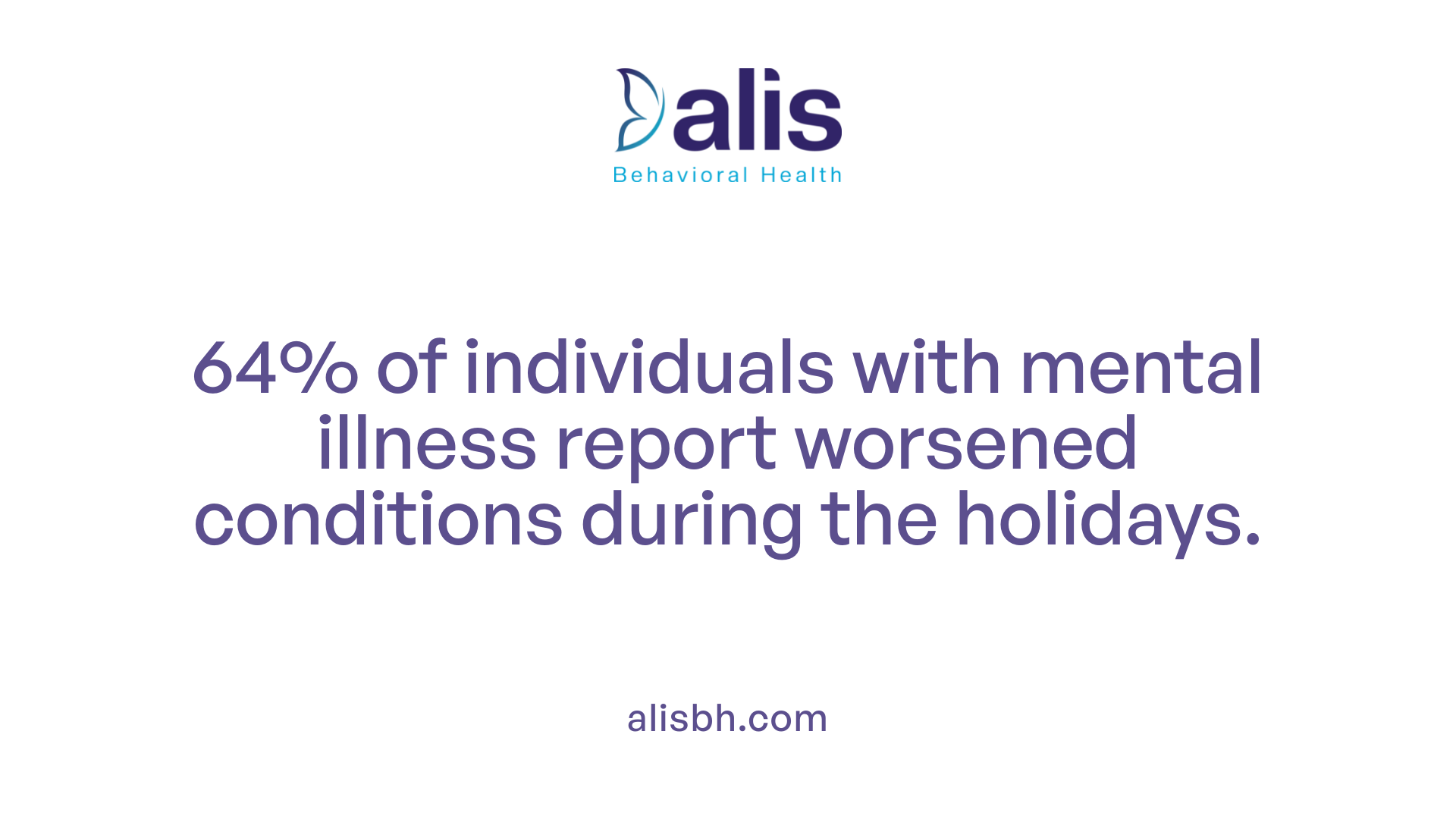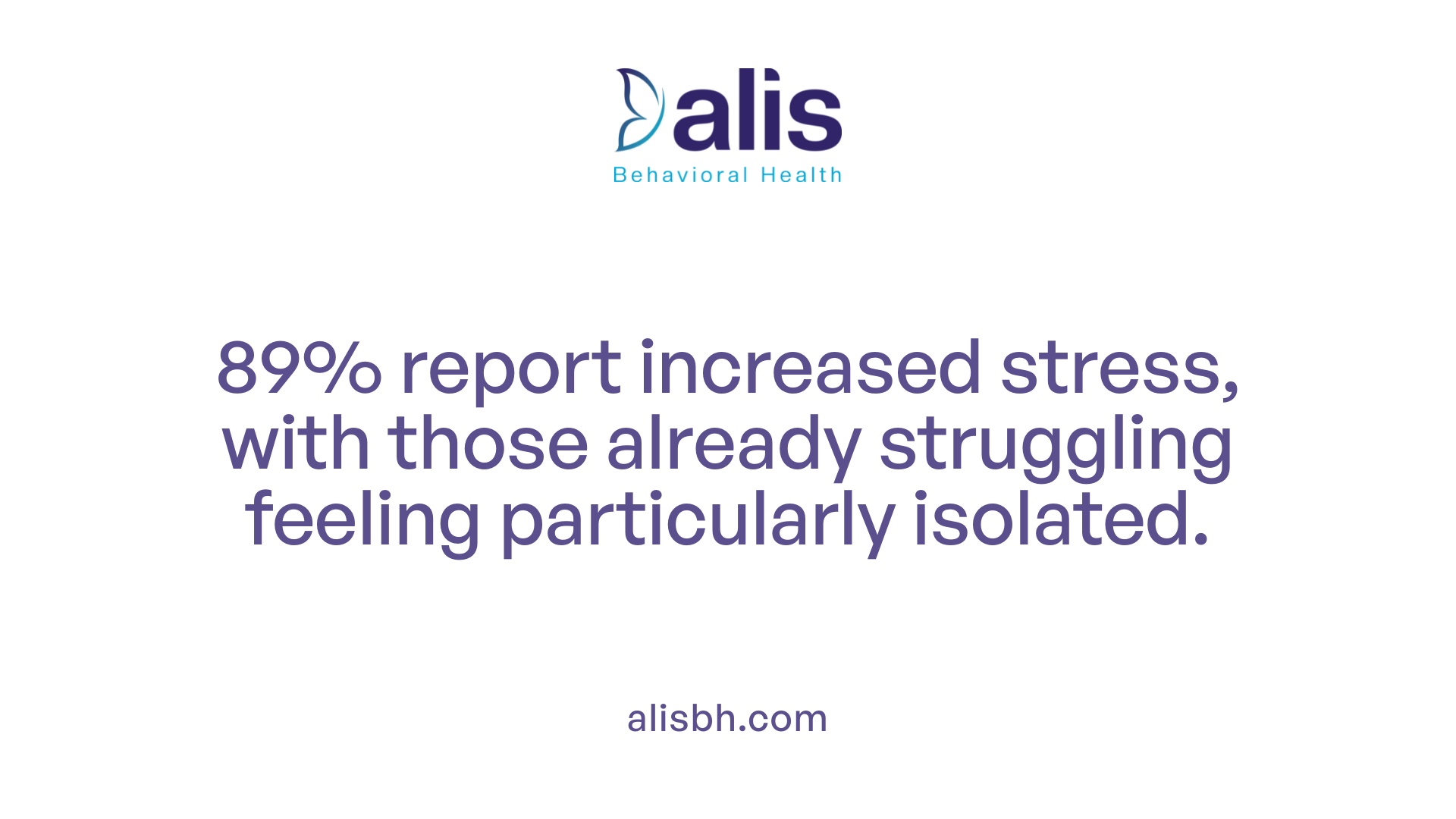The Connection Between Financial Stress and Depression During the Holidays.
Unwrapping the Emotional Impact of Holiday Financial Stress

Understanding the Seasonal Mental Health Dilemma
As the holiday season approaches, many look forward to enjoying a time traditionally associated with celebration, giving, and family bonding. Yet, behind the curtain of holiday cheer lurks a sobering reality for countless individuals: the profound impact of financial stress on mental health. With expectations to participate in gift-giving, hosting elaborate gatherings, and engaging in festive activities, the financial pressures associated with the season can lead to significant emotional strain. This article explores the intricate relationship between financial stress and depression during the holidays, offering insights and strategies to navigate this challenging period.
Financial Stress: The Silent Holiday Burden

Prevalence of Financial Stress During Holidays
Almost 90% of Americans experience anxiety during the holiday season, with financial pressures being the predominant source of stress. A survey revealed that nearly 75% feel overwhelmed by rising costs and the financial strain of holiday spending. As the National Retail Federation anticipates record spending levels, this stress can become even more pronounced. The reality is stark: households with incomes under $50,000 are notably more likely to report high holiday stress levels compared to their wealthier counterparts.
Impact on Mental Health
The pressures stemming from financial stress not only elevate anxiety levels but also correlate with increased risks of depression. Nearly 86% of Americans link financial concerns to symptoms of anxiety and depression, particularly during this season. Financial difficulties can disrupt sleep and diminish overall mental wellness, becoming a cycle where stress aggravates financial issues. Furthermore, individuals who overspend tend to find less satisfaction in their holiday experiences, which foreshadows a deeper emotional discontent.
Solutions to Mitigate Stress
To combat financial stress during the holidays, creating a realistic budget is crucial. Planning beforehand helps manage expectations around spending and prioritizes experiences over material gifts. Employing strategies like gift exchanges, potlucks, and open conversations about financial situations can alleviate pressures. Additionally, practicing self-care through relaxation techniques and seeking professional guidance—be it financial or mental health-related—can support a healthier approach to the season. Ultimately, addressing both financial and mental health needs is essential to enhancing overall well-being during the holidays.
Holiday Stress Factors Beyond Finances

How do the holidays affect mental health?
The holiday season can significantly affect mental health, particularly for those already experiencing mental health challenges. A notable 64% of individuals with mental illness report that holidays worsen their conditions. This can stem from increased responsibilities such as shopping, social events, and family gatherings, which often lead to feelings of stress and anxiety.
During the holidays, family dynamics can be particularly challenging. Expectations around family gatherings might intensify tensions, especially if financial constraints come into play or if personal experiences differ from idealized holiday norms. This discrepancy often leads to feelings of inadequacy or frustration.
Strategies for coping with non-financial holiday stressors
To cope with these pressures, it's essential to embrace a few strategies:
- Set realistic expectations for what you can accomplish.
- Practice relaxation techniques, such as mindfulness or deep breathing.
- Prioritize adequate sleep and a balanced diet to help stabilize your mood.
- Try to connect with others through community activities, such as volunteering, which can help alleviate feelings of loneliness and foster a sense of purpose.
Recognizing that holiday stress can stem from various factors, not just finances, is crucial for maintaining emotional well-being during this time.
The Ripple Effects of Holiday Financial Anxiety

How financial anxiety affects holiday experiences
The holiday season brings not only joy and celebration but also a significant amount of financial anxiety. Nearly 90% of Americans report experiencing stress during this time, with factors such as inflation and the pressure to give gifts exacerbating feelings of inadequacy. This anxiety can overshadow the holiday spirit, resulting in a less enjoyable experience.
Cycle of impulsive spending and stress
Financial anxiety often sets off a cycle of impulsive spending. The desire to meet societal expectations or personal goals can lead individuals to overspend, which, in turn, can deepen financial troubles and escalate stress. According to research from the University of Skövde, impulsive spending driven by anxiety reinforces a negative cycle that affects overall well-being.
Advice to break the cycle
To mitigate financial stress, experts recommend creating a realistic holiday budget that includes all potential expenses, such as taxes and shipping costs. Engaging in open conversations with loved ones about spending limits can also help reduce pressures associated with gift-giving. Alternatives like experiential gifts or collaborative family activities can ease financial burdens while enhancing the joy of the season. Implementing these strategies promotes healthier financial habits and improves emotional well-being during a potentially overwhelming time.
| Strategy | Description | Benefits |
|---|---|---|
| Create a holiday budget | Plan expenses ahead, including shipping and taxes. | Reduces the risk of overspending. |
| Discuss spending limits | Have conversations with family about gift expectations. | Decreases pressure and expectations. |
| Opt for experiences over gifts | Give memories, not material items. | Creates meaningful connections. |
Financial Stress and Depression: A Season of Struggle

How does depression tend to change during the holidays?
Depression often amplifies during the holiday season, influenced by the pressure of financial obligations, family dynamics, and societal expectations. Research shows that about 89% of U.S. adults report feeling stress in this period, with 41% indicating higher stress levels than usual.
For individuals with existing mental health conditions, risks increase dramatically. The National Alliance on Mental Illness reveals that 64% of those living with these conditions note a decline in mental health around the holidays. The cheerful and communal nature of holiday celebrations can accentuate feelings of isolation for those struggling with depression.
Impact of societal expectations
Societal expectations to participate in festivities can impose stressful comparisons. The pressure to buy extravagant gifts, host expensive gatherings, or maintain a festive spirit can lead individuals to feel inadequate when they're unable to meet these expectations. Such financial strain contributes to feelings of guilt and disappointment that can exacerbate depressive symptoms.
Addressing depression during holidays
To navigate these challenges, individuals are encouraged to implement strategies that promote mental well-being. Setting realistic financial and emotional goals, practicing self-care through mindfulness or physical activities, and openly discussing feelings of stress with loved ones play pivotal roles. Engaging in cost-effective holiday traditions or emphasizing experiences over material gifts may also help alleviate financial pressures, thus fostering a more positive holiday experience.
Navigating Financial Stress: Expert Tips and Solutions

Coping Strategies
To effectively manage financial stress, individuals can adopt certain strategies. Discussing low-cost gift alternatives or hosting potluck gatherings can facilitate meaningful connections without breaking the bank. Practicing mindfulness and self-care, like taking time for relaxation or exercise, can help maintain mental well-being.
Budgeting and Financial Planning
Setting a realistic holiday budget is crucial. It's recommended that individuals include all potential costs, such as taxes and shipping, in their financial plans. Experts advise preparing a shopping list in advance and considering experiential gifts over material ones. This approach can help alleviate stress associated with overspending while ensuring thoughtful gifting.
Importance of Professional Guidance
If financial pressure becomes overwhelming, seeking professional help from financial advisors or mental health professionals is beneficial. They can provide tailored advice and coping mechanisms, making the holiday season a more manageable and enjoyable experience. Communicating openly with loved ones about financial situations can lead to more supportive environments, reducing stress.
Low-Income Families: Unique Challenges and Resilience
Struggles Faced by Low-Income Families
Low-income families often encounter distinct hurdles during the holiday season. The pressure to spend on gifts, food, and festivities can be overwhelming, especially when financial resources are limited. Reports indicate that individuals earning less than $50,000 experience a higher level of holiday stress compared to those with larger incomes, with 24% rating their stress levels as high.
Impact on Mental Health
The challenges of holiday spending can lead to profound mental health implications. Financial strain exacerbates feelings of inadequacy and may trigger anxiety and depression, especially as these families may face rising living costs and increased credit card debt. Nearly 72% of Americans cite finances as a significant stressor, and it's clear that low-income families feel this pressure intensely during the holidays.
Community and Support Network Solutions
Despite the struggles, many low-income families find strength in community support. Local organizations often provide resources like food drives and holiday assistance programs, enabling families to celebrate without overextending themselves financially. Encouraging honest discussions about financial situations with family and friends can also facilitate low-cost celebrations, reinforcing communal bonds and reducing stress. By prioritizing togetherness over materialism, these families can create meaningful holiday experiences.
Finding Joy Amidst Financial Challenges
The holiday season may present a landscape of potential stressors, especially when financial concerns intersect with mental health. However, by implementing practical strategies and acknowledging the emotional impact of financial stress, individuals can take proactive steps toward maintaining their well-being. Whether it's through setting realistic spending plans, engaging in mindful self-care, or reaching out for professional support, it is important to prioritize mental health during this season. Ultimately, finding joy in non-materialistic experiences and authentic connections can not only alleviate financial burdens but also enrich the holiday experience for all involved.
References
- Managing Financial Stress During the Holidays - AbleTo
- Managing financial stress during the holidays - Spectrum News
- The Holidays Hit Harder as Stress and Spending Spiral
- Inflation and mental health: Tackling financial stress for a healthier ...
- How to avoid financial stress during the holiday season | AP News
- Wellness Weekly: Managing financial stress during the holidays
- Even a joyous holiday season can cause stress for most Americans
Similar articles









.jpg)






























































.jpg)















.avif)







.jpg)
.jpg)



